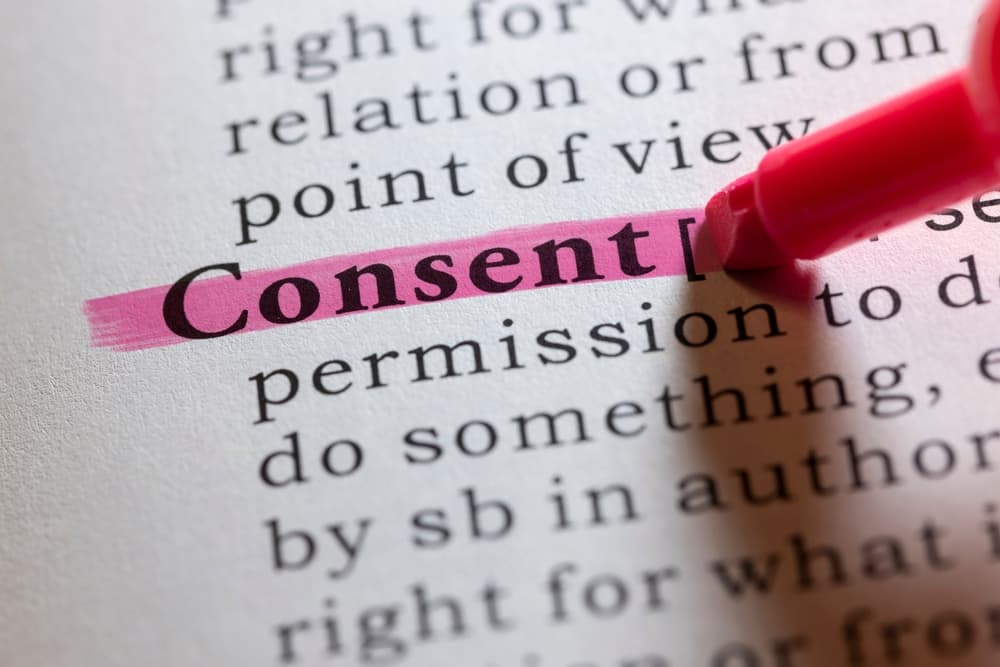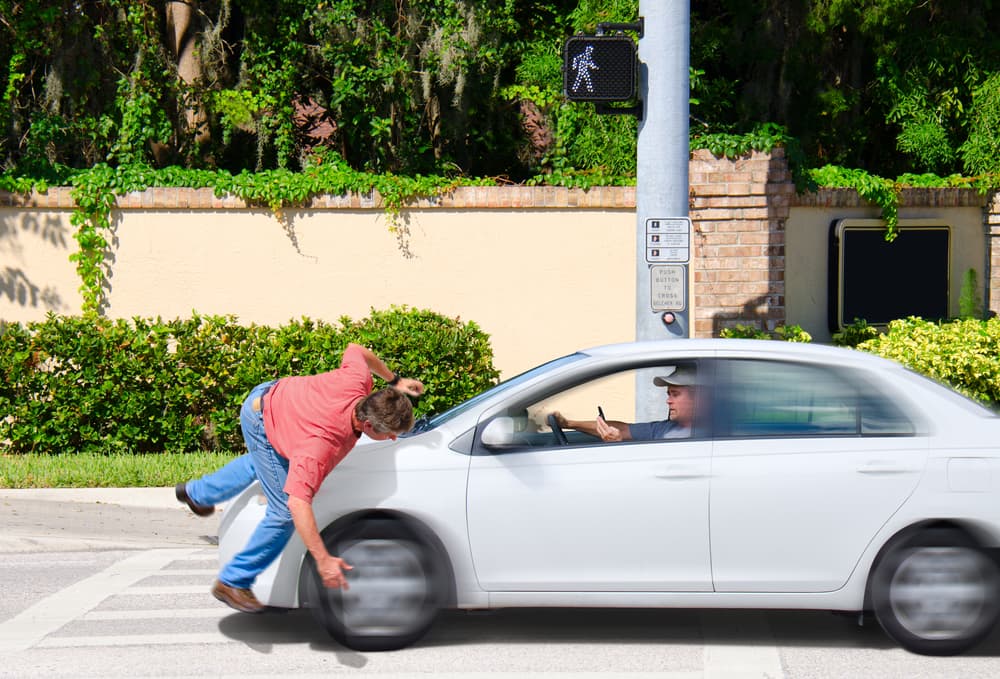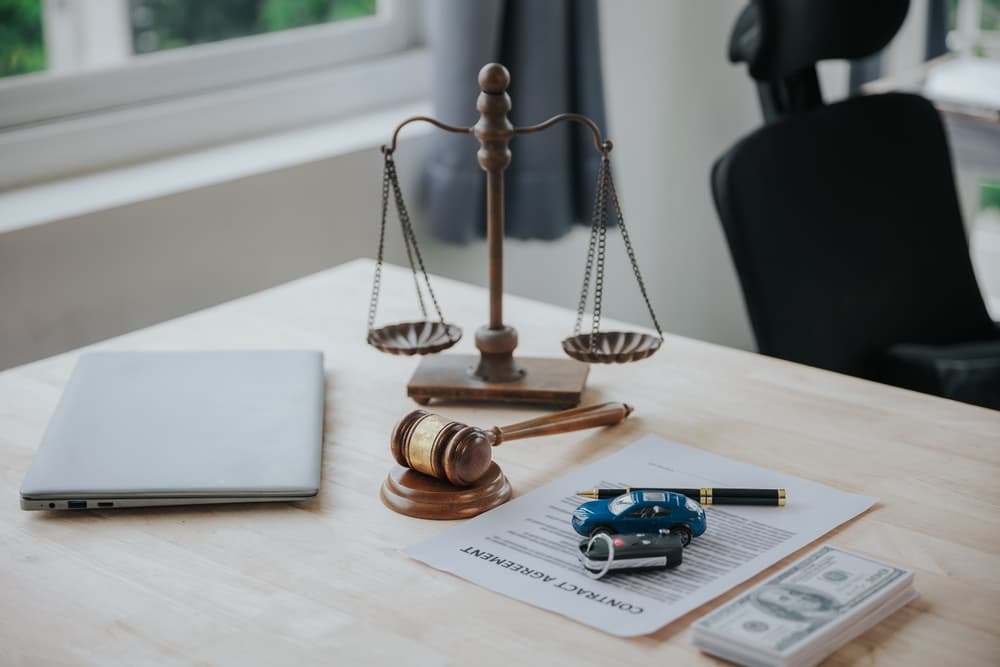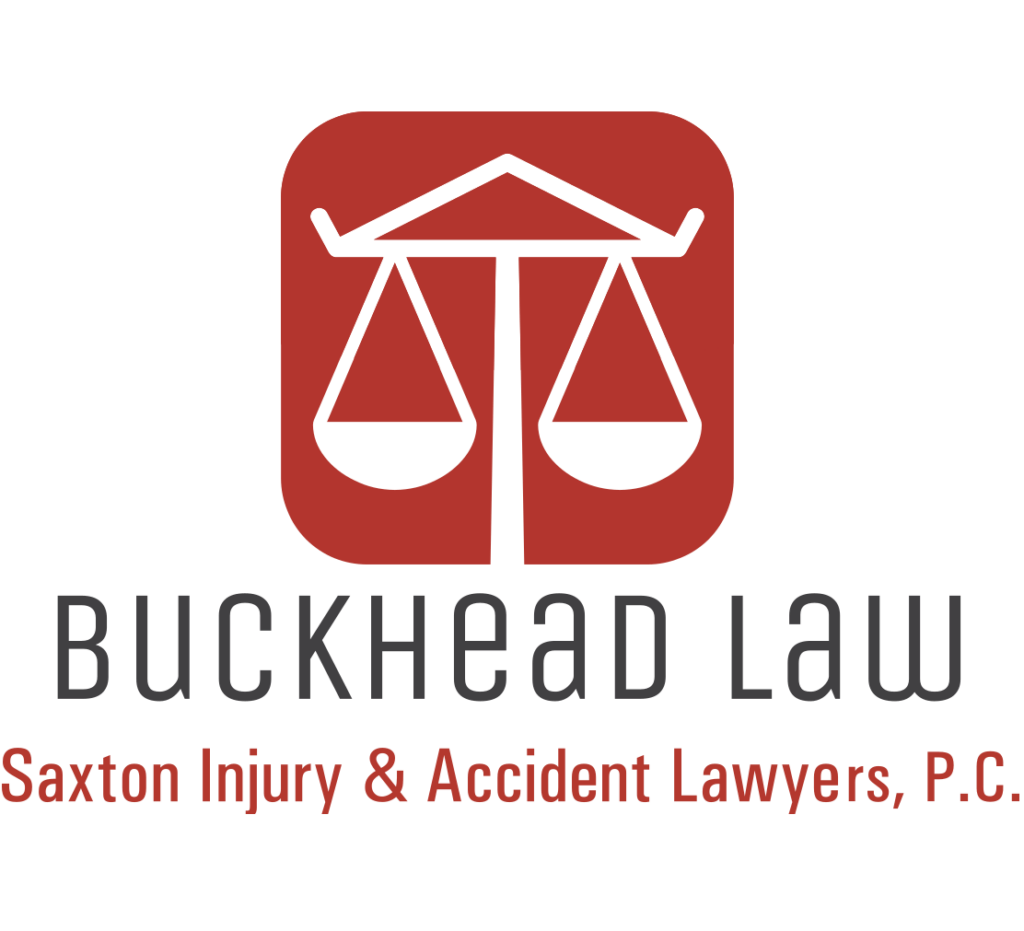When motor vehicle and pedestrian accident victims suffer injuries due to another person’s negligence, they can recover various types of monetary damages for their medical expenses, lost earnings, inconvenience, and pain and suffering. When it comes to accepting a settlement offer from the responsible party’s insurance company, the accident victim is always the final decision-maker. Therefore, a car accident attorney cannot settle a claim without the client’s consent.
Once an accident victim decides to settle with the insurance company, they will sign a release that prevents them from re-opening the claim. After settlement, the matter will end, and the case will not proceed to a trial or any other legal proceeding.
Deciding whether to settle or litigate a car accident claim can be an extremely difficult decision. A knowledgeable personal injury lawyer can weigh the pros and cons of settlement versus litigation in your case to help you come to a decision.
Frequent Injuries in Pedestrian and Motor Vehicle Accidents

Pedestrian accident victims and motor vehicle accident victims often suffer a variety of injuries due to someone else’s negligence or reckless behavior. One prevalent type of injury is traumatic brain injury (TBI), resulting from the force of a collision. TBIs vary in severity, potentially causing cognitive impairments, short-term and long-term memory losses, and long-term disabilities. The vulnerability of the head and brain in accidents underscores the serious repercussions of such injuries.
Spinal cord injuries represent another significant category of harm. The sudden, forceful impact of a collision can damage the spinal cord, leading to partial or complete paralysis. Victims may experience a range of physical and sensory impairments, altering their lives dramatically. The long-term consequences of spinal cord injuries often necessitate extensive medical care and rehabilitation.
Orthopedic injuries, such as sprains, dislocations, and fractures, are prevalent in both pedestrian and motor vehicle accidents. The sheer force involved can place immense stress on bones and joints, causing fractures and related complications. The effect on mobility and the need for prolonged recovery can significantly disrupt the lives of those affected.
Soft tissue injuries, including whiplash and muscle strains, are common in both types of accidents. The abrupt deceleration or impact can strain ligaments and muscles, leading to persistent pain, stiffness, and reduced range of motion. These injuries may not be immediately apparent, making it crucial for victims to seek medical attention promptly.
Finally, internal injuries, such as organ damage or internal bleeding, can occur due to blunt force trauma experienced in accidents. The full severity of these injuries may not become apparent until later, underscoring the importance of prompt and thorough medical evaluations following an accident.
The spectrum of injuries that pedestrian and motor vehicle accident victims may suffer due to someone else’s negligence is diverse. From traumatic brain injuries and spinal cord injuries with life-altering consequences to orthopedic and soft tissue injuries that limit mobility and cause pain, the physical toll is profound. Internal injuries further emphasize the complexity of the challenges these victims face. The comprehensive nature of the injuries underscores the importance of seeking both immediate medical attention and long-term support to address the multidimensional repercussions on the lives of those affected.
Causes of Pedestrian and Motor Vehicle Accidents

Pedestrian accidents and motor vehicle accidents often result from various forms of negligence, reflecting a range of behaviors that compromise road safety. One prevalent cause is distracted driving. When drivers divert their attention to activities like texting, talking on the phone, or adjusting in-car entertainment systems, their ability to focus on the road diminishes significantly. This negligence increases the risk of collisions, particularly with pedestrians who may be less visible.
Speeding constitutes another common cause of accidents, often stemming from a driver’s disregard for posted speed limits or road conditions. Excessive speeds reduce reaction time, making it challenging to navigate unexpected obstacles or stop in time to prevent a collision. Speeding-related accidents can lead to more severe injuries and property damage due to the heightened force of impact.
Failure to yield is a frequent contributing factor to both pedestrian and motor vehicle accidents. Drivers who neglect to give the right-of-way at intersections, crosswalks, or when merging onto highways put others at risk. This negligence can result in collisions, especially when they fail to adhere to traffic signals or signs.
Impaired driving, whether due to alcohol or drugs, is a significant cause of accidents. Intoxicated drivers experience diminished cognitive functions, impaired judgment, and slower reaction times, significantly increasing the likelihood of accidents. Impaired driving poses a danger to both pedestrians and other motorists, making it a particularly egregious form of negligence.
Reckless driving encompasses a broad range of unsafe behaviors on the road, such as aggressive maneuvers, tailgating, and weaving between lanes. These actions not only endanger the driver but also pose a significant threat to pedestrians and other motorists. Reckless driving often results from a lack of consideration for traffic laws and the safety of others sharing the road.
The most common causes of pedestrian and motor vehicle accidents arising from others’ negligence revolve around distracted driving, speeding, failure to yield, impaired driving, and reckless driving. Identifying and addressing these negligent behaviors by others are crucial steps in improving road safety and preventing accidents.
How Can a Lawyer Help Me Decide Whether I Should Settle?

Engaging a motor vehicle accident lawyer is pivotal in navigating the complex decision between settling a case or proceeding to litigation within the court system. The attorney’s experience serves as a guiding force, providing a thorough evaluation of the circumstances to determine the most advantageous course of action.
One primary role of a motor vehicle accident lawyer is to assess the strength of your case. They scrutinize the evidence, including police reports, witness statements, and medical records, to gauge the viability of pursuing a lawsuit. Understanding the legal merit of your case forms the foundation for making informed decisions regarding settlement or litigation.
A key consideration in this evaluation is the determination of liability. Lawyers analyze the evidence to establish fault, examining factors such as traffic laws, witness testimony, and any available surveillance footage. This assessment influences the likelihood of success in court, providing crucial insights into the potential outcomes of litigation.
Financial considerations are also integral to the decision-making process. A motor vehicle accident lawyer conducts a comprehensive review of your damages, including medical expenses, property damage, lost income, and potential future costs. This detailed financial analysis informs discussions about settlement amounts, ensuring that any proposed resolution adequately compensates for the full extent of your losses.
Additionally, an experienced attorney considers the efficiency and timing of settlement versus litigation. Settlements often offer a quicker resolution, providing immediate compensation. However, the attorney weighs this against the potential for a more substantial recovery through litigation. They assess the strength of the case, potential delays in court proceedings, and the overall effects on your life, including the emotional toll of a prolonged legal battle.
Communication with the opposing party and their insurance representatives is a crucial aspect of the decision-making process. A skilled motor vehicle accident lawyer engages in negotiations, advocating for your interests and leveraging their legal experience to secure a fair settlement. They assess the responsiveness of the other party and the willingness to negotiate, factors that play a role in the determination of whether litigation becomes necessary.
A motor vehicle accident lawyer provides you with a comprehensive understanding of the advantages and disadvantages of settling versus litigating your case. They can guide you through the decision-making process, weighing legal, financial, and practical considerations to ensure that your chosen course aligns with your goals and maximizes your recovery. The attorney’s insights and strategic approach empower you to make informed decisions that prioritize your well-being and financial interests.
What Are My Litigation Options If I Don’t Settle My Case?
If you decide not to accept a settlement offer from the at-fault driver’s insurance company in a car accident case, you have the option to pursue litigation to seek compensation for your injuries and damages. Litigation involves taking the matter to court, and there are several legal avenues you can explore within this process.
One option is filing a personal injury lawsuit against the at-fault driver. In this scenario, your attorney will prepare and file a formal complaint outlining the details of the accident, the injuries you sustained, and the damages you are seeking. The at-fault driver becomes the defendant in the case, and they, along with their legal representation, will have the opportunity to respond to the allegations.
Discovery is a crucial phase in litigation where both parties exchange information and evidence related to the case. This involves gathering documents, witness statements, and any other relevant evidence to strengthen your claims. During depositions, which are part of the discovery process, counsel for both sides pose questions to the involved parties and witnesses under oath.
Mediation or settlement conferences are often court-mandated attempts to reach a resolution before going to trial. A neutral third party, the mediator, facilitates discussions between you and the at-fault driver’s legal team. While this process seeks to reach an agreement without a trial, it does not guarantee a settlement.
If the parties do not reach a settlement through alternative dispute resolution methods, the case will proceed to trial. Trials involve presenting evidence, witness testimonies, and legal arguments to a judge or jury. The judge or jury then decides the outcome, determining liability and the amount of damages, if any, that they will award the injured victim.
An appeal is an option if either party disagrees with the trial court’s decision. This involves submitting the case to a higher court, where appellate judges review the proceedings to assess whether any legal errors occurred. An appeal is not a new trial but rather an examination of the legal procedures and decisions made during the initial case.
Understanding these litigation options empowers you to make informed decisions about how to proceed if you choose not to accept a settlement offer. Consulting with an experienced personal injury attorney is crucial throughout this process to navigate the complexities of the legal system, build a compelling case, and protect your rights as you seek fair compensation for your injuries and damages.
What Damages Can I Recover Through Settlement or Litigation?

When pursuing a settlement award or litigation result in the aftermath of a car accident, victims may be eligible to recover various types of damages, categorized broadly as non-economic, economic, and punitive damages.
Non-economic damages encompass intangible losses that are challenging to quantify precisely. Pain and suffering fall under this category, acknowledging the physical and emotional distress that the victim has experienced. The effect on the overall quality of life, loss of enjoyment, and mental anguish all factor into determining the total amount of non-economic damages to award the accident victim. Another type of non-economic damage is emotional distress, which extends beyond physical injuries to encompass psychological harm. This may include anxiety, depression, and post-traumatic stress disorder (PTSD) stemming from the traumatic experience of the accident.
Economic damages, on the other hand, are tangible and quantifiable losses directly tied to the accident. Medical expenses constitute a significant component, covering immediate treatment, ongoing care, surgeries, and rehabilitation. Economic damages also include compensation for property damage, such as vehicle repairs or replacement. In addition, lost income and loss of earning capacity are economic damages that address the financial repercussions of the accident on the victim’s employment. If the injuries result in a temporary inability to work or a permanent reduction in earning potential, these damages aim to provide compensation for the income lost due to the occurrence.
Punitive damages serve a widely different purpose, as their intent is to punish the at-fault party for particularly egregious conduct and deter similar behavior in the future. Unlike compensatory damages, which aim to compensate the victim, punitive damages focus on penalizing the wrongdoer. An injured party may be eligible for these damages in cases where the at-fault party’s actions demonstrate a willful disregard for the safety of others or involve some form of gross negligence.
The available damages for a car accident victim seeking a settlement award or pursuing litigation cover a broad spectrum. Non-economic damages address intangible losses like pain, suffering, and emotional distress. Economic damages compensate for tangible financial losses, including medical expenses, property damage, lost income, and loss of earning capacity. Punitive damages, while less common, aim to penalize and deter egregious behavior. Evaluating and quantifying these various damages requires a comprehensive understanding of the victim’s unique circumstances, emphasizing the importance of legal experience to ensure a fair and comprehensive recovery.
Speak with an Experienced Personal Injury Lawyer Right Away About Your Legal Matter

If you sustained injuries in a recent motor vehicle or pedestrian accident that resulted from another party’s negligence, a personal injury law firm in Atlanta can help you decide whether to settle or litigate your case. If you choose settlement, your attorney can inform the insurance company and guide you through the necessary steps to finalize your case and bring it to an efficient conclusion.
